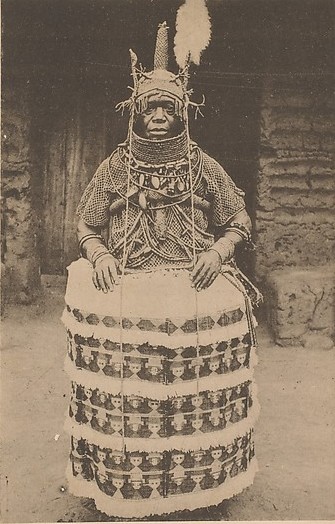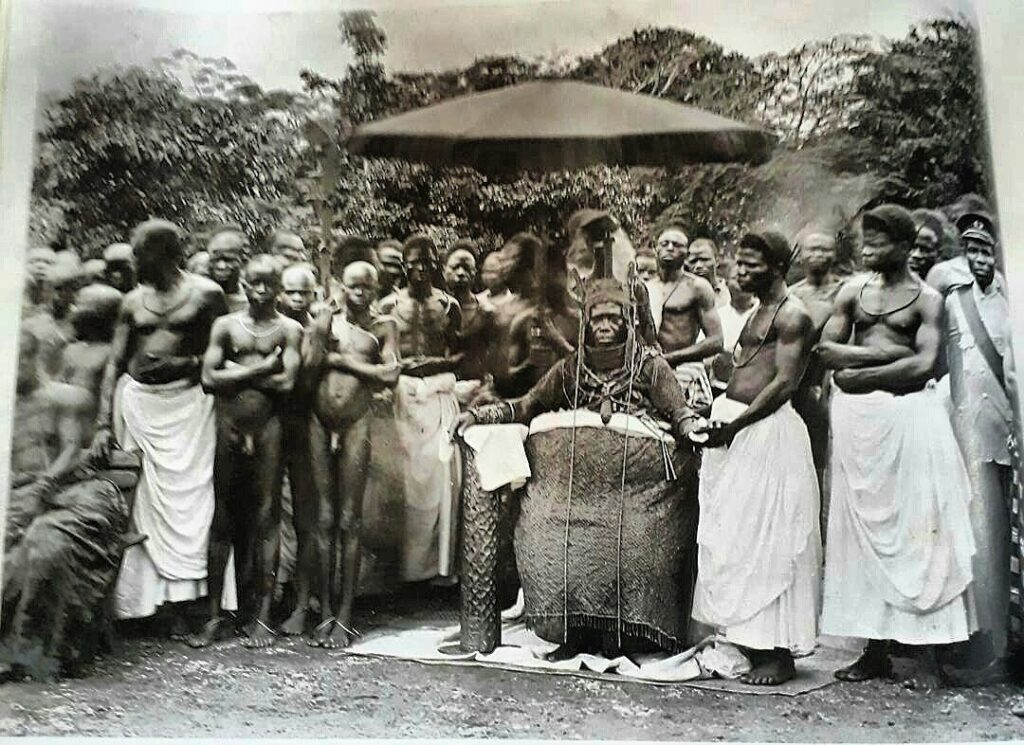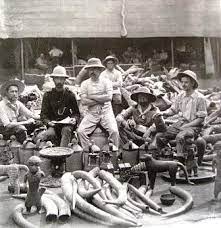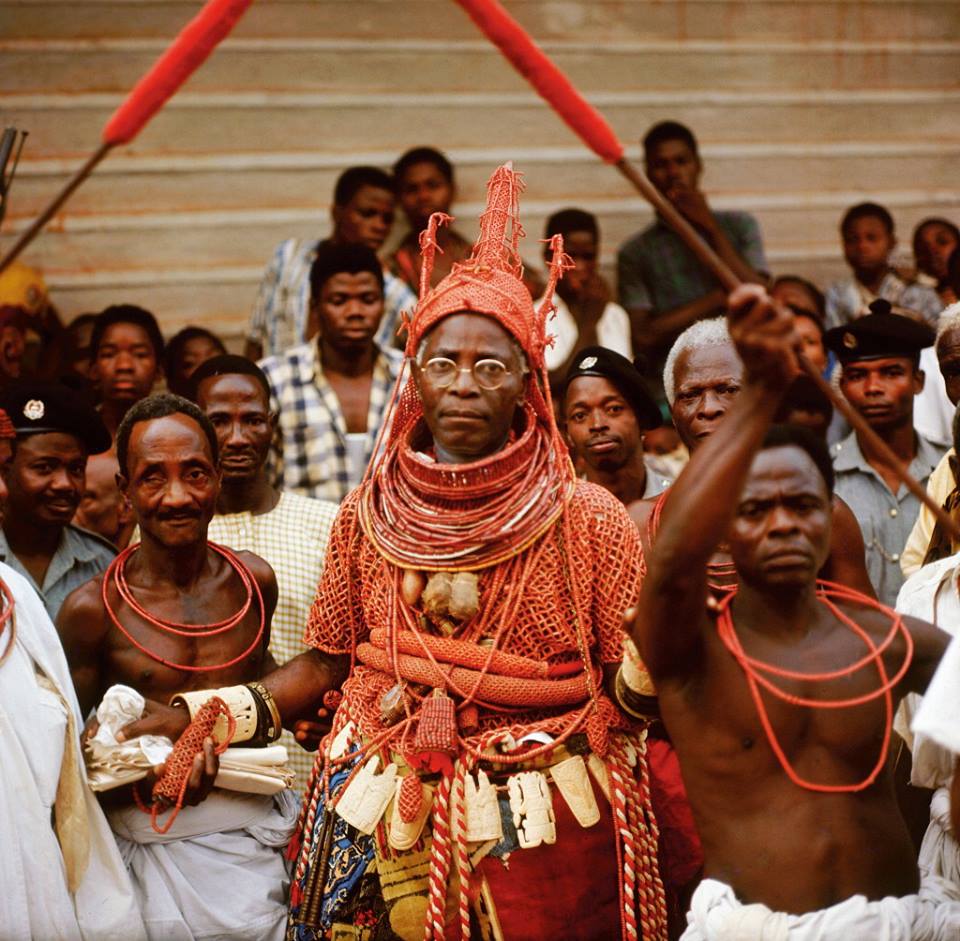Benin was one of the most important historical kingdoms in the western African forest region from the 13th to the 19th centuries. Benin’s kingdom originated in the 900s when the Edo people arrived in West Africa’s rainforests. By the 1400s, they had established a prosperous kingdom led by the Oba, a formidable ruler. The Obas resided in magnificent palaces adorned with gleaming brass.
The Edo people, according to history, started when they were displeased with the reign of a dynasty of semimythical monarchs known as the “Ogisos” and requested Prince Oranmiyan of Ife to rule them in the 13th century. His son Eweka is considered Benin’s first oba, or monarch, though, at the time, power would stay in the hands of a hereditary order of local chiefs for many years.
The ancient Benin Empire was one of the oldest and most developed states in West Africa’s coastal hinterland. Before the main European colonial interlude, the empire provided a picture of a relatively well-organized and sophisticated African polity in existence.
In this piece, Naijabiography explored the history of the Benin Kingdom, its traditions, culture, and heroes.

History
Around the year 900, Edo gangs began cutting down trees and clearing land in the rainforest. They lived in small family groups at first, but these groups eventually grew into a kingdom. Igodomigodo was the name of the kingdom. It was controlled by a line of monarchs known as Ogisos, or “rulers of the sky.”
History has it that the Ogisos lost control of their kingdom in the 1100s due to power disputes. Fearing that their land might descend into disorder, the Edo people turned to their neighbour, the King of Ife, for assistance. The monarch dispatched his son, Prince Oranmiyan, to restore the Edo kingdom’s peace.
To maintain peace and order, which he was invited to do, Eweka, Oranmiyan’s son, was chosen afterwards by Prince Oranmiyan himself as the first Oba of Benin. Eweka was the first of a long series of Obas who rose to prominence in the 1500s.
Later in the 13th century, the oba Ewedo began to exert himself, and the most famous oba, Ewuare the Powerful, who reigned between 1440 and 80, was characterized as a great warrior and sorcerer, solidifying royal power. Also, the Obas gradually gained more land and expanded their kingdom. They also began to trade with European merchants.
Ewuare established a hereditary throne and substantially expanded the Benin kingdom’s territory, which by the mid-16th century spanned the Niger River delta in the east to what is now Lagos in the west.

How the Kingdom of Benin became an Empire
Ewuare became the new Oba of Benin around 1440. He gathered an army and began conquering countries. Later, due to his resilience and the legacy of his father, Oranmiyan, Benin City and the royal palace were also restored by him.
The first of five great warrior rulers, Oba Ewuare, was the first. Oba Ozolua, his son, is said to have won 200 fights. Oba Esigie expanded his realm eastwards to build an empire and conquered land from the Kingdom of Ife, as his successor. Ozolua and Esigie were both pro-Portuguese merchants. They exploited their trading income to assemble a massive army.
Oba Orhogbua was the fourth warrior king, and his reign became the beginning of the empire’s expansion. Therefore, the empire grew to its greatest magnitude during his reign. In the east, it reached beyond the Niger River, while in the west, it reached as far as modern-day Ghana. Then, the last of the warrior rulers was Oba Ehengbuda. History has it that he spent the majority of his reign suppressing local chieftain rebellions. Thus, Benin’s power steadily diminished after his death in 1601.

What ‘Ended’ the Benin Kingdom?
The Kingdom of Benin began to lose influence in the 1800s, and the Obas struggled to maintain control over their people. The empire began to deteriorate in the 19th century. According to the historian, the slave trade had been supplanted by the trade in palm oil, and the Oba imposed a personal export monopoly that did not endear him to his chiefs or the general populace.
As one of the few local leaders who still maintained their independence at the time, Oba Ovonramwen did not receive the typical military support from his chiefs as he continued to fight annexation by the British. At the time, Britain became a threat to Benin. The British intended to take control of Benin so that they might profit from its palm oil and rubber exports. The Oba attempted to cut off all ties with the United Kingdom, but the British insisted on their right to trade.
A party of British officials attempted to visit Benin in 1897. They were sent away since the Oba was preoccupied with a religious ceremony, but they insisted on paying a visit. As they approached Benin’s frontiers, a group of warriors forced them back, killing numerous British soldiers. The actions of the Oba of Benin made the British angry, and as a result, they sent more than a thousand soldiers to invade Benin. In the process of evading them, the British set fire to a huge part of Benin, but only after plundering the palace’s valuables, including the famed bronze sculptures that can still be viewed in the British Museum.
Following his defeat, Oba Ovonramwen was exiled to Calabar, where he died in 1914, around Nigeria’s border town with Cameroon. However, history has it that the Oba’s resistance to Benin’s invaders contributed to the monarchy’s nearly mythical prominence in modern times, because after his death, the British convinced his son to ascend the throne, since he needed a traditional ruler for the indirect rule system to be achieved.

The Tradition of Benin in the Modern Day
Bini’s history and customs are still very much alive for them, even after the British evasion. For instance, the single-story structure is one of the few of its kind in Benin City that survived the 1897 fires.
Also, another tradition is the mock battle, in which Oba Ewedu conquered the Ogiamien, a rival dynasty, in the 13th century. This is a tradition in which a simulated fight between the present Ogiamien and the Oba-to-be is frequently held to memorialize the military skirmish. However, in recent times, the custom has not been followed because oftentimes, the individual who holds this inherited title has been missing for decades, and no one knows where he is till today.
According to history, the Oba gave a royal stool, a plate of kola nuts, and a bronze staff to his erstwhile opponent as part of a 13th-century peace between the warring dynasties. Also, the Oba calls the gateway to heaven a place in the outer wall that used to be a doorway but is now bricked in. However, only the Oba is permitted to enter through this gate, which will be unlocked when the king arrives.






Comments
Mbam Charles
3 years agoVery interesting